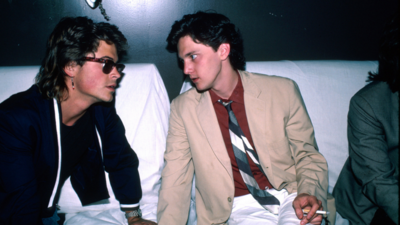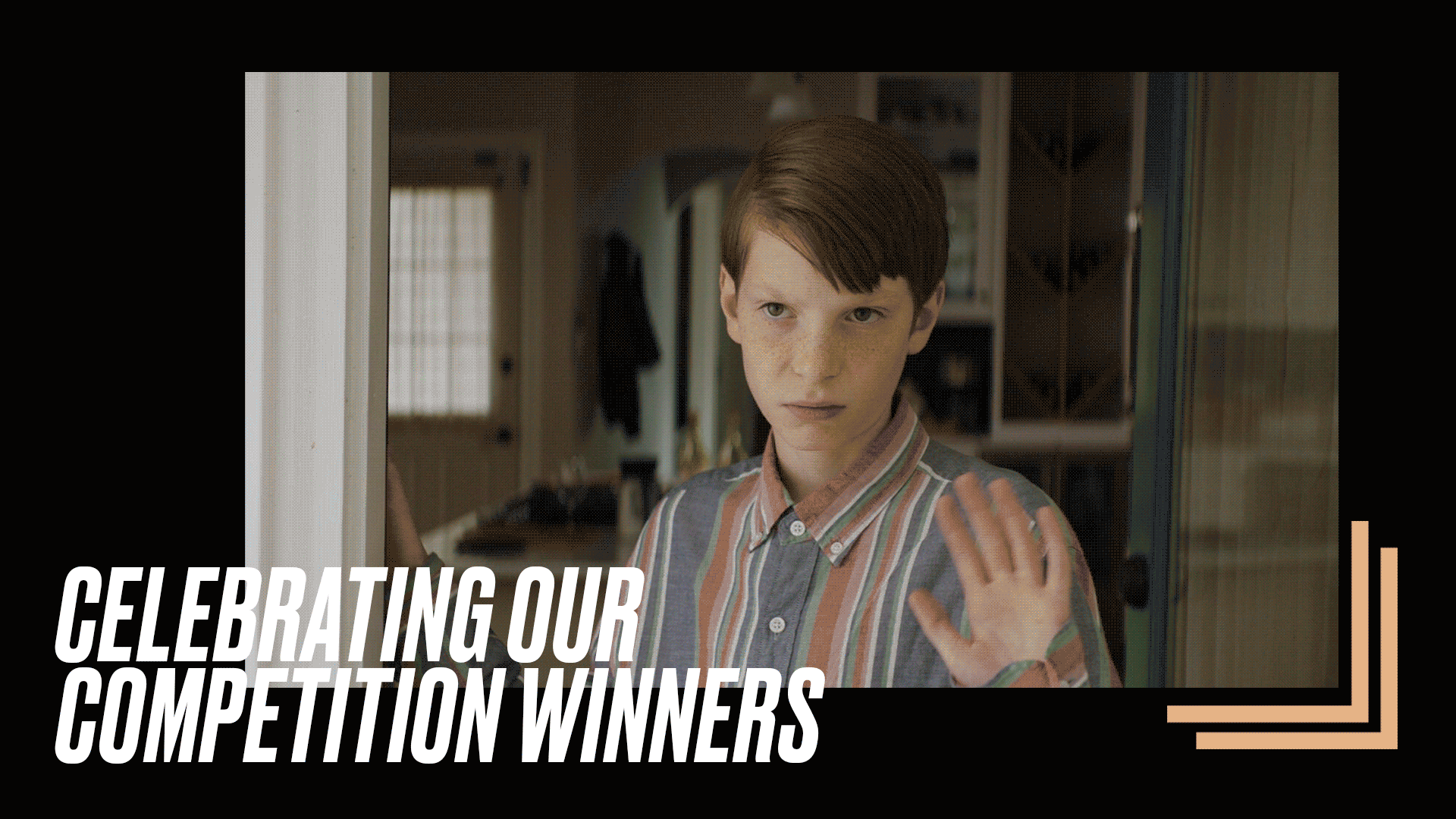
BY KAREN KEMMERLE |
‘Lily’ Director Matt Creed on the Catharsis of Collaboration
In Lily, a young woman in her late twenties battles and survives cancer and changes her perspective on life in big and small ways. Director Matt Creed talks about exploring vulnerable headspace and writing for the post-millennial generation.

Tribeca: Tell us a little about Lily. What inspired you to tell this story?
Matt Creed: It was Amy Grantham herself that inspired the story because it’s her story. We had a conversation when she was dealing with her illness and got into her headspace. She seemed very vulnerable, and I was in a very vulnerable state of mind myself. I found it very interesting to tell explore vulnerability through her story. I could relate to what she was going through even though I have not gone through cancer.

Tribeca: Can you discuss your collaborative process with Amy Grantham?
MC: First, I read her blog, and I found that she wrote really well. I just sent her an e-mail and asked if she liked short stories and if she wanted to help me work on an idea when she was in the depths of chemotherapy. Later I followed up, we met, and she started to talk about all these feelings she was having about her situation. It just sounded so interesting.
When she was finishing her treatment, I congratulated her and said , “You must be so happy.” And she said, “No, I’m not. This is my greatest achievement, and I feel depressed that the only thing I’ve ever followed through on from beginning to end was cancer."
I started prying into her life a little more and then asked if we could write about it. She was obviously very thrilled, and we began a process of meeting up, her telling stories, and my taking those stories and putting them in an outline format. We’d go back then and started writing the script. We’d meet up everyday at my studio to share conversation after conversation, story after story, until we found the character of Lily.
New York is a character, if you shoot it right.
Tribeca: It’s not often movie-goers get to experience a film about life post-cancer as well as a movie for the millennial generation.
MC: I think that so many people in their late 20s early 30s are so lost. It’s generational. They say, “I got out of college, and I don’t know what I’m doing with my life anymore.” There is no urgency to do anything in your early twenties, but once they hit 30, they ask, and you go “Oh, what am I doing?”
Amy was talking about that dilemma as well as about her bout with cancer and I saw a distinct parallel... you know someone who is sick, and then suddenly they’re not. You never realize that there must this really weird transition period. One thing was important to me was to not make the story only about cancer. Obviously Amy’s story is complex, but aspects of it are universal.
Tribeca: I thought Amy Grantham was wonderful as Lily even though she’s essentially playing herself. Did you ever consider going with an outside actress? How did the rest of the cast (mostly non-professionals) come to the project?
MC: It was always going to be Amy. Yeah, always, no matter what. I hate the casting process. That’s my least favorite part of filmmaking. I find auditioning so awkward and so weird. So I like to use real people, non-actors as much as I can. Amy plays the lead and many of the supporting roles are played by friends and people I know, and even Lily’s mother was an actress I had known and that I offered the role to immediately. She was great.
Aaron, Lily’s older European boyfriend, was the hardest character to cast. So we held a casting session and started seeing all these men who were playing it so sleazy. My producer was friends with the great Simon Chaput and tricked him into coming to one of the auditions.
He walked in because he read the script, liked it, and related to the story. I asked him to have a conversation with Amy. They sat down and immediately connected. They were speaking French, and when she was talking, you could tell that he was really engaged and wasn’t acting. It was just super natural. So I asked him to come back the next day and read a few of the lines. He did that. He did great, and I offered him the role. The rest of the cast was friends and real people.
Tribeca: I really loved the minimalist feel of the film. It felt very neo-realistic. How did you and cinematographer Brett Jutkiewicz achieve the look you wanted?
MC: Well, Brett and I have worked together on a few other projects, and I think he’s just the most talented guy. He’s good at following the action. In a film like this, it’s really loose because you veer from the script frequently. Brett can have his wits about him and know that something’s about to happen. Working with him is a total collaboration, and I trust him. I know that he’s going to get what I want to get.
It was important to me to capture that feel of New York in the fall and to have a mix between handheld and locked-off shots. Most of the scenes with the doctors are shot on tripod to capture this kind of very stiff feeling and environment. When we were out filming in the street, we used handheld cameras to capture that free flowing essence of New York. In this city, as you know, you never know what’s going to happen. New York is a character, if you shoot it right.

Tribeca: Given that the film is based on Amy’s real life story, were there any scenes that were particularly challenging for the cast/crew to shoot on an emotional level?
MC: I think for her, emotionally, the radiation scenes were tough. She thanked me for insisting on the scene, and it may have been one of the most beautiful moments in the film.
Tribeca: It is a really rare movie that takes you behind the doors of cancer treatment. It’s not Terms of Endearment Hollywood-sized drama.
MC: I wanted to capture those really intimate moments about cancer that I didn’t previously know about. I learned everything through Amy. Specifically, my favorite moment in the film is when she puts the aloe on her arm. I get chills when I see that scene.
Tribeca: I imagine shooting on the streets of New York was quite an experience. What's the craziest thing (or "lightning strikes" moment) that happened during production (for better or worse)? I know that Amy said that John Mayer accidentally got into a shot.
MC: That scene is a classic example of shooting in New York. If you know New York, you can use it to your advantage very well. I knew that intersection, and I knew that at that time there was going to be a traffic jam. So all we did was just plant a car and have the driver honk, and everything else just happened. The guy with the New York Yankees hat just walked in, didn’t look at the camera, and had that interaction. John Mayer walked by at that moment. You can see his back, but that’s a great moment in the film that just really organically happened.
I was nervous about how to capture this really chaotic moment which was a boiling point for Lily as a character. If you live in New York long enough, you have these moments, especially when you are going through difficulties in your life, when you yell at a cab driver but you really don’t mean it. I think that was the lightning strikes moment for sure.
I found it very interesting to tell explore vulnerability through her story.
Tribeca: How long was the shooting period? Amy was on the last legs of treatment, so that must have complicated things.
MC: 18 days. She had just finished actually before we started filming, but she was still getting over a lot of stuff. She got really sick because her immune system was very weak from all the treatment. There were some scenes in which she had a 100 degree plus ever when we were shooting.
We wrote on her last day of treatment, and she took her wig off in front of me for the first time. I was one of the first people she did that with, and her hair is growing back. When we were filming, her hair was growing in still. That’s her real wig you see in the film.
Tribeca: What are you most looking forward to at Tribeca?
MC: I’m just happy to have this opportunity here to share this film with an audience. What happens after that, only time can tell.
Tribeca: What makes Lily a Tribeca must-see?
MC: It’s an experience. I think that you’ll walk in there thinking one way and leave thinking another. And to me, that makes a good film.
Lily plays one last time on Friday, April 26 at the AMC Village Loews. For more information, please visit our Film Guide listing.

